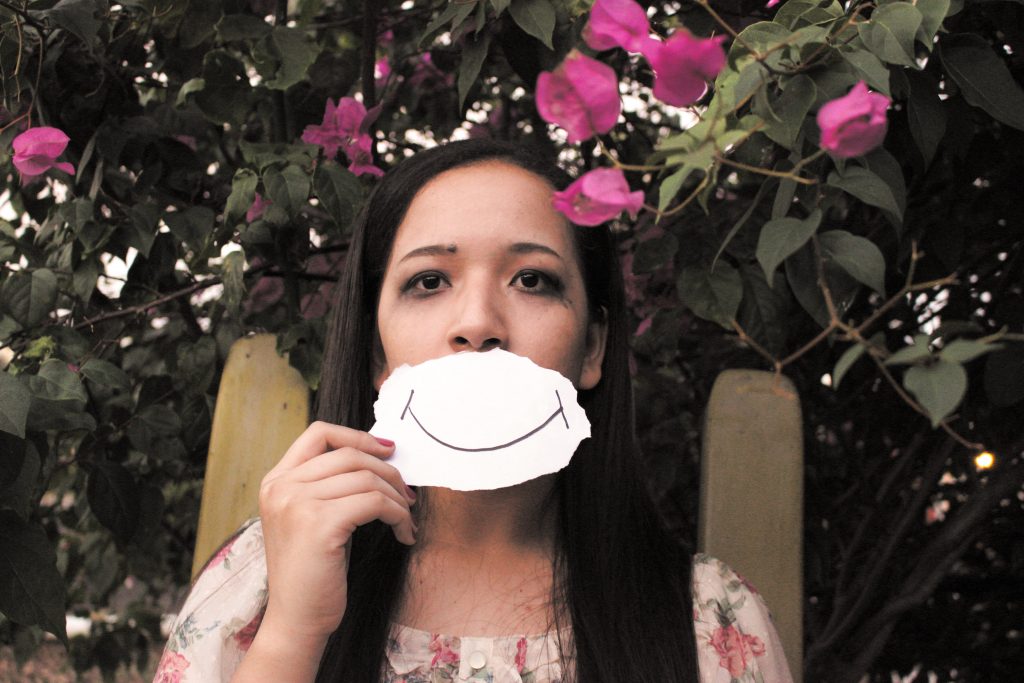How To Be There For Your Depressed Child
07.07.2021
Audio version
For your convenience here is the audio version of this article. Press Play to listen.

You knew parenting would be tough, but nothing prepared you for the moment depression came for your child. How do you step up to help your depressed child when it feels they hate you and don’t want help?
As a parent, you simply don’t see it coming. Every parent feels they do the best for their child and that they understand their child’s mind. Sometimes you even end up blaming yourself.
8 signs your child is depressed
The symptoms of teen depression include:
- Reduced interest in previously nourishing hobbies or passions
- Prolonged sadness or irritability for most of the day that’s gone on for at least 2 weeks
- Starkly changed eating or sleeping habits
- Long periods of silence or social withdrawal
- Reduced energy and motivation
- Expressions of worthlessness, hopelessness, or misplaced guilt
- Dropping grades or wandering concentration
- Expressions of suicidal ideation (this is an emergency)
Even as an adult, depression does everything in its power to sap yours and block you from seeking treatment. Depression works like a dictator clinging to power, shutting down any ways its subject (you) could eject it from power, eventually pummelling you into exhausted acceptance.

As a child, this journey must be immensely confusing when you’ve not yet had the life experience to help you contextualize depression.
Whether you’ve had depression yourself or not, you have to react differently when it’s your kid. Putting aside the instinct to “fix” everything seems impossible as the Mama or Papa Bear you are. But your child has to want to get better.
Your job involves listening, being there, and helping them reframe daily life.
Team Vippi will help you recognize the signs and be the best caregiver possible for your struggling child.
How might teen depression manifest itself?
Psych2Go compiled this simple, effective video showing you a few signs of teen depression. Be alert for the symptoms.
While the symptoms of depression are similar at most ages, it shows itself in specific ways during childhood.
- School problems. Your child might be struggling to concentrate and have low energy. This could contribute to lower grades in previously excellent students, reduced attendance, or a greater tendency to get into fights than they did before.
- Difficulty managing basic responsibilities. This might include personal hygiene or the chores for which they’d usually be responsible around the home.
- Discussing running away from home. They may even make a full-blown attempt to do so. They will usually not be threatening to run away in earnest and could be doing so as a cry for help.
- Drug and alcohol misuse. They may attempt to drown their sorrows with alcohol or illicit drugs, which is likely to make the problem worse.
- Being silent or withdrawn for unusually long periods of time. They may barricade themselves in their room or be unusually quiet around other people. This might also take the form of complete absorption in their smartphone. Your child may just withdraw from specific people
- Social media addiction: Getting responses and likes on social media posts provides a brief rush of the feel-good brain chemical dopamine. During bouts of depression, teens may lean too far into this effect and become addicted to their smartphone screens. Depressed teens also hunt for the fleeting mood boost of peer validation. However, this opens the door for cyberbullying and detaches your child from reality.
- A permanently distant gaze, like they’re staring into the abyss. This is often known as the Thousand Yard Stare.
- Reduced self-esteem. Depression can make teens think they’re ugly and stupid. This triggers feelings of shame and failure. They may express worthlessness or feeling that they serve no purpose.
- Risky behaviors. Teens might engage in more risky behaviors during depression as a way of lashing out during depression. This might take the form of reckless driving or unsafe sex.
- Aggression and violence. In children and teens, depression doesn’t really manifest itself as sadness. Instead, your child may well become very confrontational and even violent, especially if they’re being bullied.
- Being extremely sensitive to criticism. Those feelings of worthlessness? They may make it very difficult for your child to accept criticism, even feedback you deem to be relatively inoffensive or well-meaning.
- Aches and pains they can’t explain. They’ll often complain of an upset stomach or headache. Depression causes physical symptoms in adults, too. But if your teens tell you about these pains and a physician can’t find a cause, they’ve probably got depression if they’re showing other symptoms on this list.
What to do if your child is talking seriously about suicide
This is as much of a medical emergency as a heart attack or a stroke. The steps are:
- Make sure they are not alone. If you can’t be there yourself, contact a family member urgently.
- Ask them to hand over any weapons or sharp objects to you or the person keeping them company.
- In the U.S., contact 911 or The National Suicide Prevention Lifeline on 1-800-273-TALK. (Outside of the U.S., contact emergency services or check the International Association for Suicide Prevention site for the best rapid-response port of call near you.)
- Wait with them (or have someone wait with them) until help arrives.
Warning signs include:
- Someone actively talking about an urge to commit suicide.
- Someone making plans such as offloading personal possessions, and saying goodbyes after a prolonged period of depression.
- Someone suddenly increases their level of dangerous or reckless behavior, such as deliberately dangerous driving or illicit drug use.
- Someone suddenly becomes extremely calm and blank after a prolonged period of emotional distress.
How to tell when they’re really depressed or just being moody

Don’t jump to conclusions about depression.
It’s not just prolonged moodiness but a medical condition that needs attention from professionals. It’s important (and natural) to be vigilant.
But it’s not your place to make the diagnosis.
Teenagers won’t usually show depression as sadness, like many adults do. Instead, you may see more anger. They also show the physical effects of depression like stomach aches and headaches that can’t be pinned on another cause. Depression isn’t a teenage mood swing – it lasts for several weeks. Sometimes longer.
Be alert, but don’t smother them. Teens don’t like feeling something is wrong with them, that they’re “different” than their peers or broken. You can attend to their feelings without bearing down on them. But if you suspect depression, keep a close eye for a week or two to see if symptoms continue.
What can you do? Helping your depressed child
It’s important to take a cautious but distanced approach to your child’s recovery from depression. Maintaining normality and gently encouraging a social life are the keys to helping your child want to get better.
Ways to show support:
- Acknowledge their feelings. Frustration with feeling unseen may make problems worse and nudge your child toward unhealthy coping mechanisms like booze and drugs. You need to let them understand that you see how they’re hurting and that you’re available to chat whenever they need.
- Work on strengthening your relationship. You can do this by demonstrating empathy and understanding without applying pressure or blame. Spend time with them in person, and make sure you put any after-hours work or extra obligations on the backburner to do so.
- Don’t try to “fix” them or force them into fun scenarios. Even without depression, teens can be remarkably stubborn. But you know your child and what they like – find events that they might enjoy and which might spark their interest in their social groups and hobbies again. Even just encourage them to have people over – “I’ll get takeout in for you and your friends if you fancy having a games night” or similar. Group activities with other families might not seem enjoyable to them at first, but they provide a great opportunity for resocializing your child.
- Provide stability. You are their rock, and whether they seem appreciative or not, their anchor in the world. Give them a normal family life – and if they want to be on their smartphones during a family board game night or picnic, give them enough space to feel their way around the condition. Upheaval can happen to families for any reason – divorce, relocation, illness, or financial struggles. Teenagers are more than capable of moving with life events, but it’s important that you keep the family dynamic as stable and normal as you can.
- Lead by example. Telling your teen to get involved and re-engage while you slouch in front of the TV night after night will simply seem like hypocrisy. You need to stay social too. Get into volunteering and suggest your teen joins you – helping others can lift a person’s mood tremendously.
- Understanding required by both parents. It can be the case that one parent understands what they’re going through but the other isn’t as familiar with the condition and its awful impact on daily life. They might unfairly dismiss the child as being difficult. This also applies to step-parents and any other guardians who are responsible for the child’s welfare.
- Sibling support. It’s also important to clue the child’s siblings into why their brother/sister is behaving out of sorts in terms they will understand. Family counselling might be an idea to help you all face your child’s depression as a united front.
- Set firm boundaries. You are still a parent. Depression is awful, but it’s no reason for a child to ditch their contributions around the home and make everyone’s life difficult. In fact, allowing them to leave their clothes on the floor or ignore their chores can make them feel like they’re the “broken child” who needs special treatment, which can isolate them further.
- Set chores with deadlines. Depression also feeds off an undisciplined mind, so maintaining your usual rules and upholding some level of routine can help keep their mind focused and occupied. Chores also fill up time and stop your child getting sucked into the darker corners of this condition. Delegating a task keeps them actively engaged and stimulated rather than letting them be self-reliant on passive coping mechanisms like absent-mindedly thumbing through their phones. With chores, their brains are focused on the very thing they have to do. For example, have your child help you with the gardening and give them a particular task, like mowing the lawn. Plus, gardening sneaks in some physical activity, so it’s great for your child on more than one level. Sometimes, you won’t win this one. But it’s worth trying to enforce some normality.
Stay active
Physical activity is one of the great antidepressants. And depression can make a teen feel they need to fall on unhealthy crutches – sugary junk food, binge gaming, smartphone addiction, and potentially alcohol and drug use. These behaviors set them up for a lifetime of unhealthy coping mechanisms.
You can break that pattern.
- Invite them on activities and slip exercise into chores. Take your teen on cycles, go for walks, shoot a few hoops at the local basketball court – whatever it is that gets them up, about, and moving. Even “can you take the dog for a walk?” can be a sneaky way to have them slip in exercise.
- Keep an eye on their screen time, especially online. While it’s borderline impossible to keep teens off their phones for meaningful amounts of time (and you shouldn’t limit the social interaction they do want, anyway), social media is an antagonist hidden in a blessing – it’s not healthy interaction, and can amplify cyberbullying while posing as reaching out to your friends. It feeds the insecure parts of the teen brain. Plus, it keeps them on the sofa and inactive.
- Make sure you cook them real food. No freezer meals, no processed food, and no fast food (bar the odd motivational treat takeout when they have friends over). If you can’t cook, learn. Chopping up a bunch of veg, stir-frying them in a pan, and serving them with noodles or spaghetti isn’t hard. Get them involved too.
Focus on positivity
Given a depressed child’s fragility around criticism, keeping your dialogue positive and making sure they don’t feel like a disappointment is vital.
- Recognize their achievements. If they’re staying on track, doing their schoolwork, and interacting with people, a simple “you’re seeing Johnny tonight? That’s great, we really like Johnny” will do. Don’t dwell on the sadder aspects of the condition. Focus on what they are doing, rather than what they should be.
- Keep a track record of positive statements you’ve made to them on any particular day. This might seem like overkill, but monitor both that and the number of negative ones. The positive should always outweigh the negative. Let them know you’re proud of them and that you see their efforts in keeping busy and staying on top of their day.
Linking your child with treatment
This is a delicate operation – being too heavy handed off the bat may trigger a rejection of the idea outright and act as a barrier for getting the help they need. One way to approach the topic would be taking the whole family through therapy if you have the resources. Therapy can serve as an oil check for the brain, so you could all benefit at a difficult time – and you can show that you’re all in it together.
The 21st century and its inhabitants are pretty upfront about mental health. It’s a far bigger part of the conversation than when we were young – so your teen might be up for therapy. They also might not.
However, if you let them know that you recognize they’re having a hard time, and that you’re an open ear if they need someone to talk, it can really help them feel less isolated. You’re their parent. They love you and will, eventually, turn to you for that support, even if you initially get a “f*ck off” and a slammed bedroom door.
Let them know they can have their space and that you’re still always here. You also need to keep the household running as close to normal as possible. Your child shouldn’t feel like a special, sterilized environment is being created just for them – an atmosphere that might cement their sense of isolation instead of providing them with any comfort.
Effective types of therapy for teens
Certain types of therapy are more effective for children and teens with depression than others.
These might include:
- Interpersonal therapy. This type of depression helps people communicate better and focuses on how the patient relates to other people. This can help them identify and address some of the underlying problems upon which depression has developed.
- Cognitive behavioral therapy (CBT). This provides the patient with the tools to identify and disrupt harmful ways of thinking as they emerge, as well as the behaviors that fuel or result from those harmful thought patterns.
- Dialectical behavioral therapy (DBT): This is a type of CBT developed in the 1980s. It helps people focus on their strengths to build confidence, identify the thoughts they have that made their life more difficult, and actively collaborate with their therapist. DBT is designed to reduce the severity of mood swings and improve relationships.
Some therapists or family physicians may prescribe antidepressant medications. Before accepting a recommendation of medication (even though certain medications can be incredibly effective in combination with therapy for teens), make sure they see a board-certified child and adolescent psychiatrist before moving ahead.
Your physician won’t have the expertise, and antidepressants can cause pretty severe side effects on the way to recovery – you want your child to be in the best possible hands. Be cautious, and make sure you seek out a recommended therapist. The American Psychiatric Association provides a tool to help you find psychiatrists, and you can select those that specialize in child psychiatry.
What if therapy isn’t working?
Therapy might not work the first time. A teen with depression has to want to get better. They might not connect well with their therapist, or they may simply not yet be ready to focus on the treatments at hand.
Ask them:
- Why don’t they think it’s helping?
- What specifically isn’t helpful about the sessions?
- Which aspects of therapy are they getting something from?
They can always change therapists – it’s not like switching meds out of nowhere, which can play havoc with their brain chemistry. Talk to their current therapist first, though. They may be able to work with your child in a way that elicits a more effective response.
Who cares for the caregiver?
Given that childhood and teen depression manifests as irritation and rage rather than sadness, it can be draining to work through it with them. You need to stay well and happy – not just to look after your child, but also for your own sake.
Stay active, happy, and social. You have your own life to attend to.
The round-up
Watching your teen go through depression can be heartbreaking.
You have to be a pillar of strength during this difficult time. Teens are keenly tuned detectors of when their parents lose hope. If their rock is losing optimism, it can push them further into depression.
If you do start to lose your footing while helping your teen regain theirs, find a local support group through charities like the Depression and Bipolar Support Alliance. These focus solely on the wellness of depression-caregivers so that these caregivers, in turn, can support the people they love.
You brought them into the world. We want for you the best in guiding them through it.
Article resource list
American Psychiatric Association. (2017). What Is cognitive behavioral therapy? https://www.apa.org/ptsd-guideline/patients-and-families/cognitive-behavioral
Find a local support group. (n.d.). https://www.dbsalliance.org/support/chapters-and-support-groups/find-a-support-group/
Find a therapist. (n.d.). http://finder.psychiatry.org/
Dowd, S. (n.d.). Parenting a depressed teenager. https://childmind.org/article/how-to-help-your-depressed-teenager/
Haynes, T. (2018). Dopamine, smartphones & you: A battle for your time. https://sitn.hms.harvard.edu/flash/2018/dopamine-smartphones-battle-time/
Holland, K. (2021). Interpersonal therapy. https://www.healthline.com/health/depression/interpersonal-therapy
Parent’s guide to teen depression. (2020). https://www.helpguide.org/articles/depression/parents-guide-to-teen-depression.htm
Some advice for parents of depressed teens. (2018). https://www.rtor.org/2018/04/10/parents-of-depressed-teens/
Teenage depression. (n.d.). https://www.familylives.org.uk/advice/teenagers/health-wellbeing/teenage-depression/


















